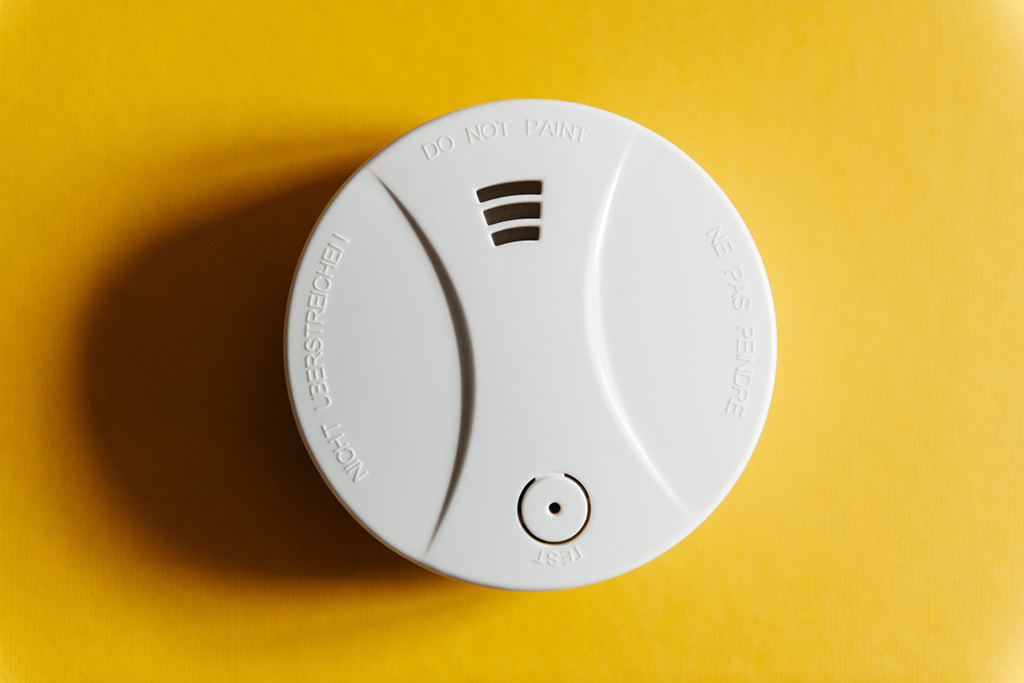
Smoke Detector Giving False Alarms? Here Are 8 Possible Reasons Explained By A Seasoned Electrician | Myrtle Beach, SC
If in good working condition, a smoke detector ensures reliable protection for you and your loved ones in case a fire breaks out in your home. But a smoke alarm gone rogue isn’t something you want at all.
When the detector senses smoke, it sounds an alarm to alert you. But, if it’s going off even when there isn’t an actual emergency, it can be annoying and terrifying.
No single cringe-worthy sound you’ve ever known can compare to the screech of a smoke alarm that goes off for no apparent reason. Not even the sound of grinding teeth. Or nails on a chalkboard, for that matter.
Like any other device, smoke detectors are prone to malfunctions. Such flaws can be due to smoke alarm sensitivity, subpar manufacturing, or external factors that could interrupt the equipment’s operation and activate false alarms.
But the good news is you don’t have to put up with this forever.
Here are some common causes of faulty smoke alarms and what you can do to resolve the problem in each case.
The Location of Your Smoke Detector
Typically, it only takes a little smoke to trigger the alarm. If the smoke detector is installed close to your toaster, oven, or stove, they’re likely the culprits for your nuisance alarms. Some more sophisticated photoelectric smoke detectors can even detect a sudden increase in temperature.
Install your smoke detector at the proper location. For example, the way leading outside your kitchen but not right in the kitchen. And this can only happen if you work with a knowledgeable and experienced electrician during the smoke alarm installation.
Installing a smoke detection device next to the door or window is also a common cause of false alarms. The draft could disrupt the sensors’ performance, even giving the illusion of smoke with particles that have come in from the outside.
In addition, high air movement can make your smoke detector produce a false alarm. And this is especially true if it’s a photoelectric alarm; the disturbing dust particles crossing the path of light can activate the sensor. For this reason, your hired electrician shouldn’t install your smoke alarm near air ducts or ceiling fans.
Overcooked Food
Besides the smoke emitted by your cooking equipment, cooking fumes from burnt food can activate your smoke detector. Is your smoke alarm taunting you every time your food gets slightly overcooked? If so, it might be an issue of smoke detector sensitivity.
Suppose your smoke detector is placed more than 10 feet away from the cooking appliance but still goes off whenever you crisp the toast. In that case, consider hiring a qualified electrician to help test and adjust your alarm’s sensitivity.
High Humidity or Steam
High humidity contains dense water vapors that may settle inside the smoke sensor, causing it to behave the same way it does with smoke particles. In other cases, the air could be so dense as to scatter the light beam of a photoelectric smoke alarm or cling to the ions in an ionization chamber, as in the case of ionization smoke detectors.
The same case applies to steam. Whether it’s the water you’re boiling on your stove or taking a shower, your smoke detector can pick up on the steam, and the alarm may sound. Therefore, if your smoke sensor is installed just outside the steamy bathroom, you should call an electrician to move it to another location to avoid false alarms.
Pesty Insects
Insects are also a common culprit for smoke alarms that sound randomly. They’ll find their way into the system through the chamber entrances where smoke enters the unit.
These insects may interfere with the working of the sensors, setting off the alarm as a result. If you suspect pesky crawling within the device, you can contact your electrician to come in and inspect it.
Dirt or Dust Buildup
Dust buildup in your smoke detector or the immediate environment of the device can lead to false alarms. You may want to clean the alarm yourself, but it’s best to enlist a trained electrician to open and clean the apparatus safely. Experts suggest using a vacuum brush to clean your smoke detectors at least once yearly, if not more.
Strong-Smelling Chemicals
Smoke detectors can pick on odors released by strong-smelling chemicals too fast. Thus, deep cleaning, re-painting your home, or using harsh chemicals for any other reason might cause your false alarms.
Weak Batteries
When your smoke alarm runs on low-charged batteries, it can emit unbearable chirping sounds. The beeping is a sign that you should replace the batteries. Except if you’ve installed an alarm operating on a lifelong battery, you’ll have to change the batteries at least once annually.
Poor Power Connection
Worn-out or old smoke detectors are susceptible to power connection issues. And when this happens, it may result in false alarms. Unfortunately, should your smoke detector have this kind of problem, there’s usually no other way to fix it but to replace it.
Residential smoke detectors last up to eight to 10 years. Beyond that, you should consider looking for an electrician for a new unit installation.
Avoid False Smoke Alarms by Partnering with Mister Sparky of Myrtle Beach
Now that you know the causes of false smoke detector alarms, why can’t you contact the skilled professionals at Mister Sparky of Myrtle Beach for assistance? Our electricians always respond quickly to client’s needs with the utmost respect.
We provide an array of smoke detectors suitable for different places in your home. If you also need outdoor lighting or generator services, ring up now!
Conclusion
A smoke detector is a lifesaver. Ensure your smoke alarms are installed correctly and tested regularly by a licensed electrician to verify that they’re operating properly. Frequent false alarms can be a recipe for disaster, as you may not tell when the alarm is genuine. Don’t take chances!
Ring us at Mister Sparky of Myrtle Beach if you need expert help.
See our previous blog on this topic here.

